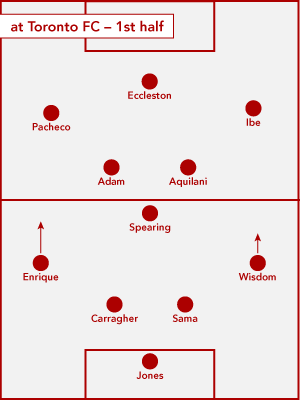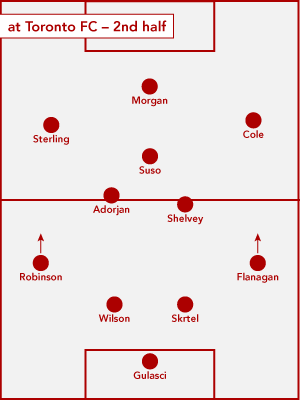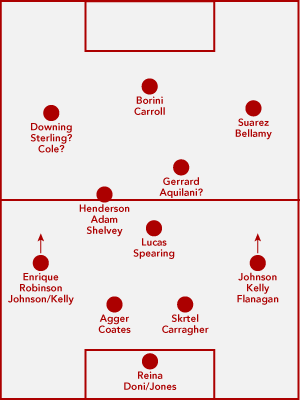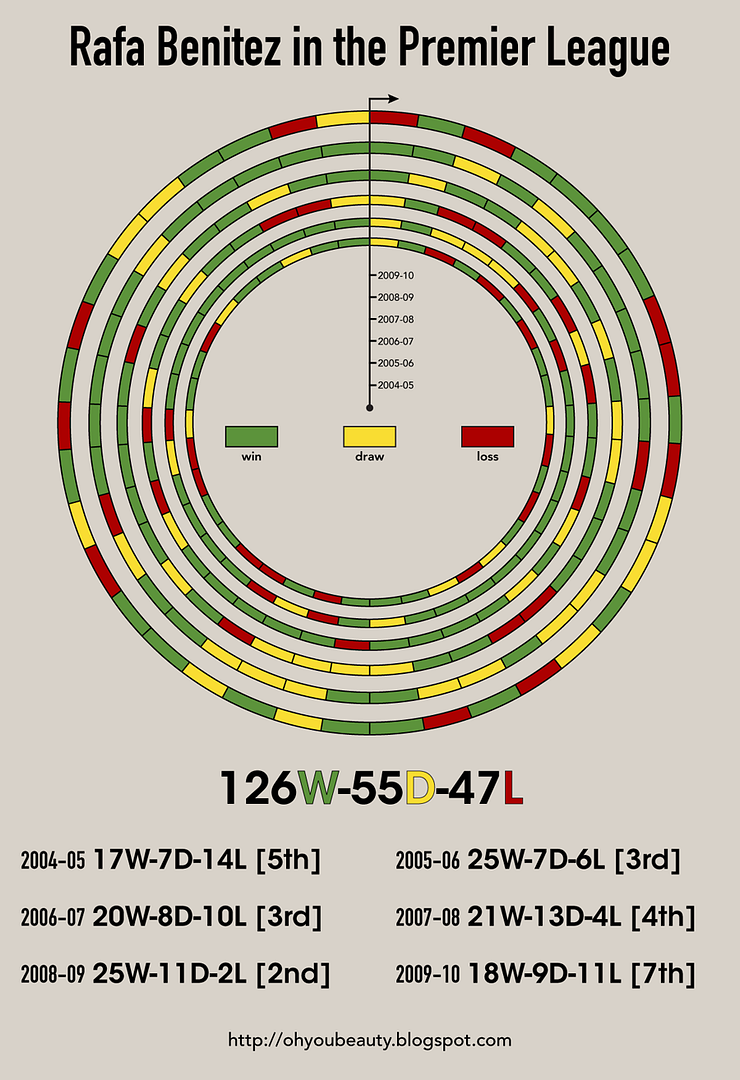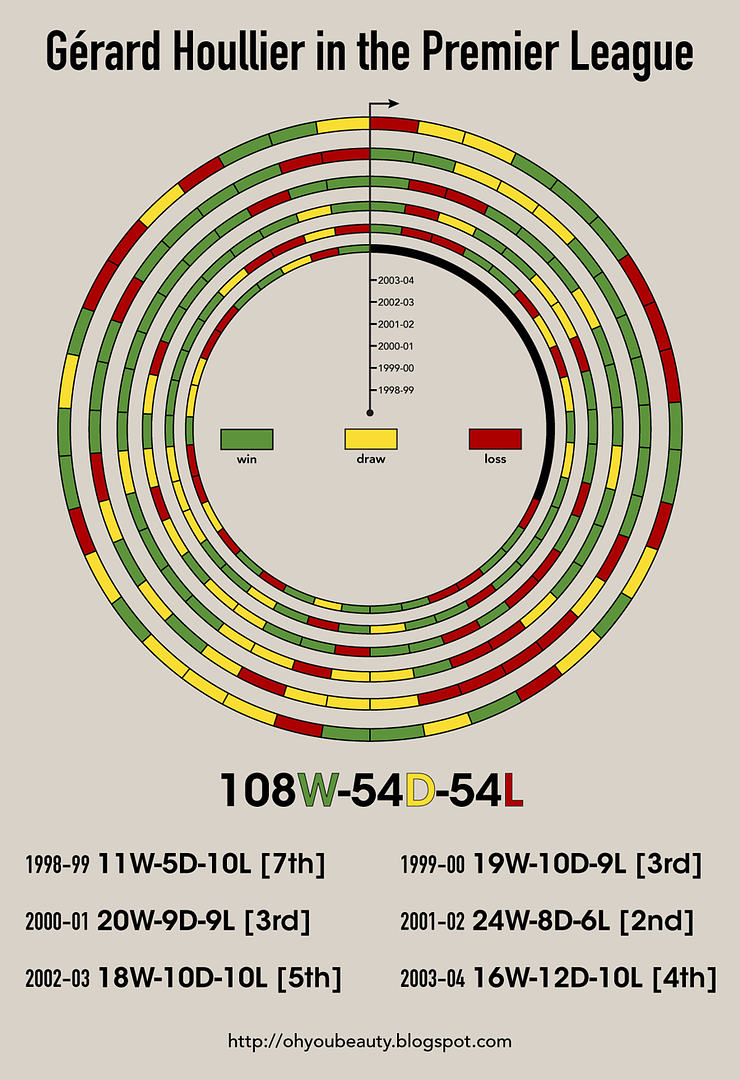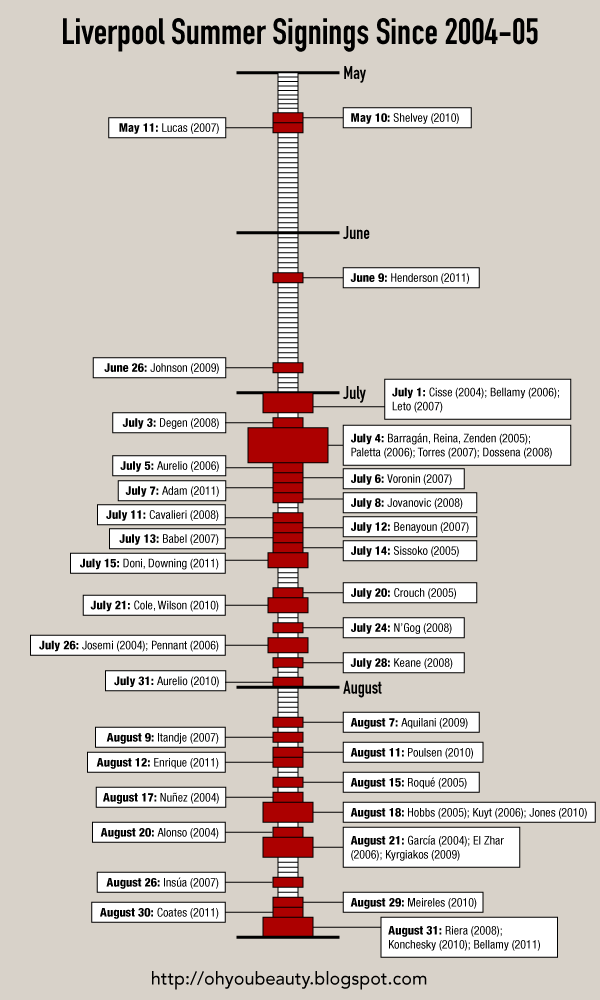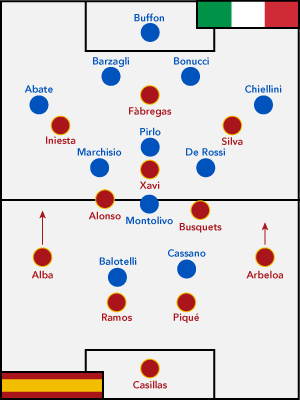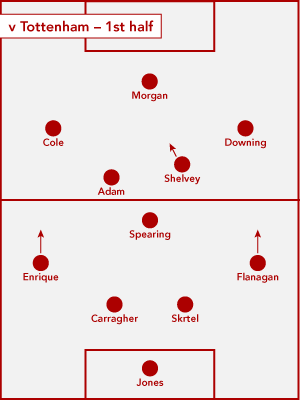 You play a preseason friendly against all-too-familiar opposition in nearly 100°F full sun afternoon heat – while wearing black even though there was no color clash, no less – and this is what you get. A tepid, underwhelming, half-assed, even boring 0-0 draw.
You play a preseason friendly against all-too-familiar opposition in nearly 100°F full sun afternoon heat – while wearing black even though there was no color clash, no less – and this is what you get. A tepid, underwhelming, half-assed, even boring 0-0 draw.I don't wholly subscribe to the "you can't learn anything from preseason" notion. Especially when it's a new manager's first preseason. You can see who'll get chances, you can see who's actually bothered to compete for a place, and we've learned that Rodgers will assuredly stick with his preferred 4-3-3 formation. It can be an augury for both tactics and personnel, even if you're hard-pressed to read too many omens from the entrails.
Still, we learned next to nothing today. The only possible lesson was that Liverpool are far better with the likes of Gerrard, Henderson, Lucas, Borini, and other almost-certain starters. Which was a fairly safe assumption to begin with. Liverpool weren't good in the first half, weren't bad in the second half. No matter the players, Liverpool rarely looked like scoring, but outside of two frightening moments late in the first half, Liverpool rarely looked like conceding either.
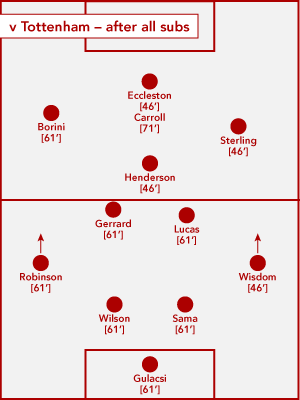 The second half improvement was almost totally due to the first shift of substitutions, followed by even more first-team regulars just after the hour mark. The addition of Henderson made the biggest difference between the two halves. A more churlish man would say "the subtraction of Charlie Adam" – and I am admittedly a churlish man – but Henderson's movement and short, controlled passing was vast improvement almost regardless of who he replaced; Rodgers' style of play is the style of play that he can revel in. Adam has not had a good preseason, looking lost in these three matches, uncomfortable in Rodgers' system, but Henderson actually looked good, more comfortable than in most of Liverpool's matches last season. We can't say the same about many involved, whether they're kids, reserves, or regulars.
The second half improvement was almost totally due to the first shift of substitutions, followed by even more first-team regulars just after the hour mark. The addition of Henderson made the biggest difference between the two halves. A more churlish man would say "the subtraction of Charlie Adam" – and I am admittedly a churlish man – but Henderson's movement and short, controlled passing was vast improvement almost regardless of who he replaced; Rodgers' style of play is the style of play that he can revel in. Adam has not had a good preseason, looking lost in these three matches, uncomfortable in Rodgers' system, but Henderson actually looked good, more comfortable than in most of Liverpool's matches last season. We can't say the same about many involved, whether they're kids, reserves, or regulars.The other starting scapegoats did little better. Cole combined well at times, worked hard, and tried to impress, but lost the ball just as often and still has the fitness of a emphysema sufferer. Downing was even more hopeless, contributing just one dangerous cross early on that no one ran onto, but that it's his first preseason game provides a marginal excuse. Spearing again did both good and bad, ticking over in midfield as needed but then bafflingly, sloppily conceding possession, all while often charging out of position. It was his giveaway which nearly led to a Spurs opener, a hospital ball pass that ended with Bale's cross flicked on to Lennon at the far post, his point-blank half-volley ricocheting off of said post. At the same time, it was his pass which led to Liverpool's best opportunity, when his perfectly-timed long ball caught Spurs' high line on the back foot, only for an onside Morgan to shoot too close to Friedel. Shelvey, on the other hand, was the best of the first half bunch, attempting to take control of Liverpool's midfield, confident on the ball and full of running.
The second half saw more of what we expect – or, I guess at this point, hope to expect – from Liverpool. More control in possession, more intelligence in passing, but still blunt in front of goal. The lack of pressing is easily explained by the conditions. But it remained cagey; the two true chances, one for each side, came from central defenders. In the 55th, Skrtel bombed forward from his own half, charging past defenders, deftly switching onto his right foot, but telegraphing his shot for an easy Friedel catch. 12 minutes later, Huddlestone's excellent chip over the top found Gallas bombing forward, but Gulacsi and Wilson did enough to prevent him making clean contact. Disconcertingly, Carroll did little to help his cause with poor passing after he came on in the 71st; Borini (playing on the left) found possession, let alone chances, had to come by; and Lucas continues to look better with each minute back on the field. I was most impressed with Sama and Wilson in defense: Sama's been the biggest revelation, comfortable in each friendly, while Wilson – back in his preferred position – wholly put Wednesday's horror show behind him.
So that's the friendlies all but done with. There's still one to go, against Sami Hyypia's Leverkusen at Anfield on August 12. Coming just three days after the second leg of Liverpool's Europa League qualifier, we're not likely to learn much there either.
With five days before Liverpool travels to Belarus for the first leg of that qualifier, we'd hoped to have seen better from pretty much everyone involved, most notably more than an average of 0.67 goals per game on this North American tour. Liverpool will have to be far better than they were in each friendly to beat FC Gomel, who are currently in the middle of the Belorussian season, in third place after finishing third last season. With the aforementioned first-team regulars back, more suitable playing conditions, and an actual, tangible reward, there's every hope that Liverpool can and will be better. But at this point, it is hope.
Still there's also the hope that, as everyone says, you just can't learn anything from preseason.
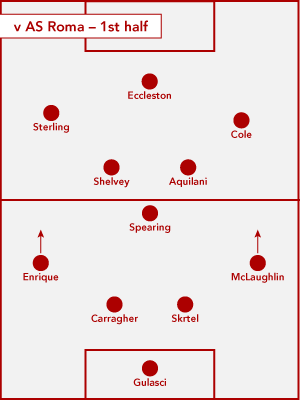
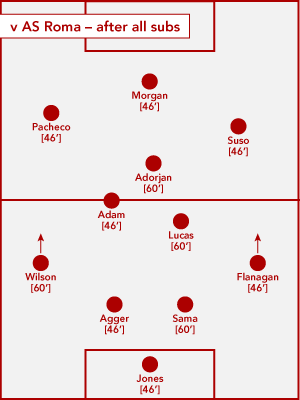 Liverpool probably played its best in the first 15 minutes of the second half, before the final four changes. Shelvey continued to play well – although made a giveaway similar to Spearing's which required Jones to save Tachtsidis' shot with his feet – combining well with also-impressive Pacheco. Most importantly, Liverpool at least kept, if not dominated, possession, which seems the starting point for what Rodgers wants to accomplish.
Liverpool probably played its best in the first 15 minutes of the second half, before the final four changes. Shelvey continued to play well – although made a giveaway similar to Spearing's which required Jones to save Tachtsidis' shot with his feet – combining well with also-impressive Pacheco. Most importantly, Liverpool at least kept, if not dominated, possession, which seems the starting point for what Rodgers wants to accomplish.